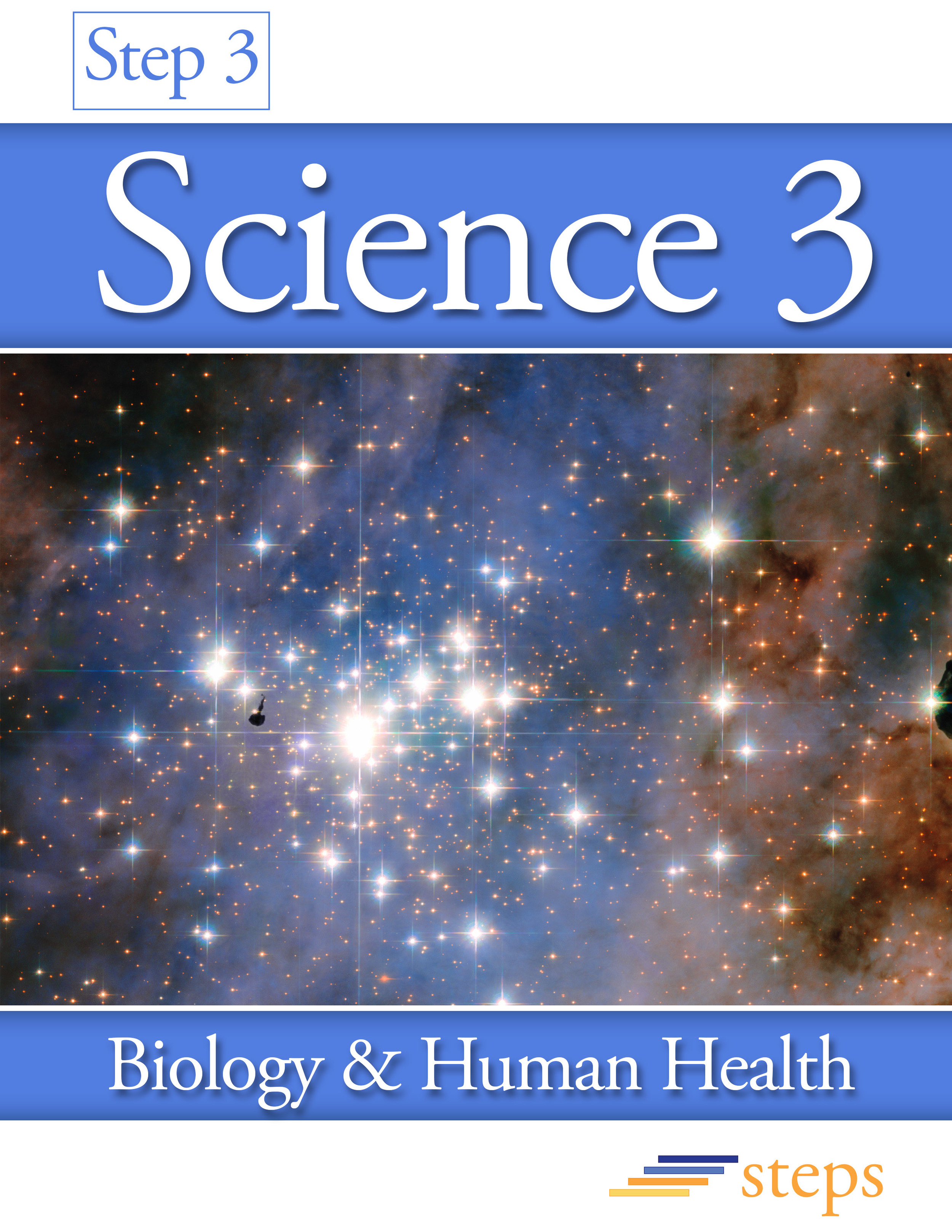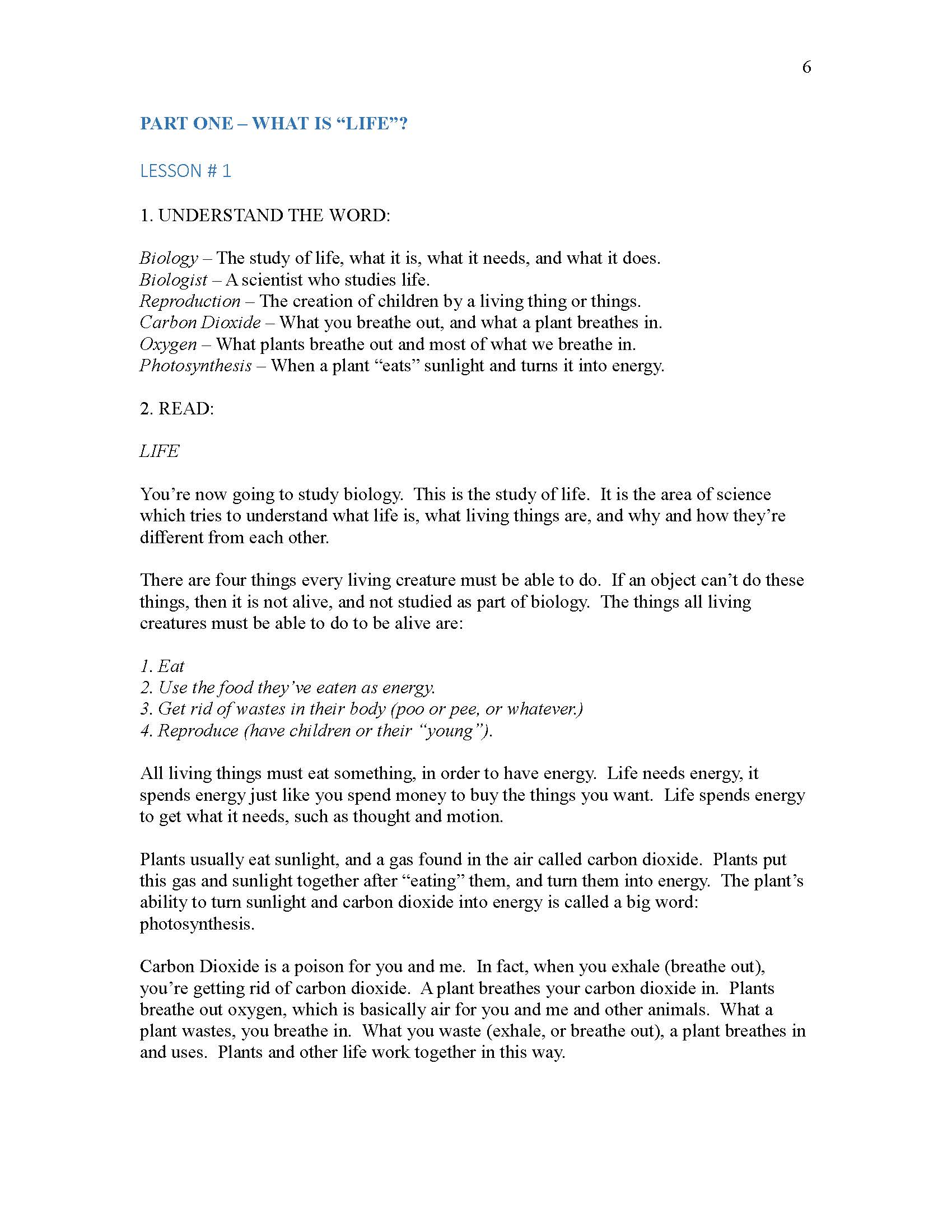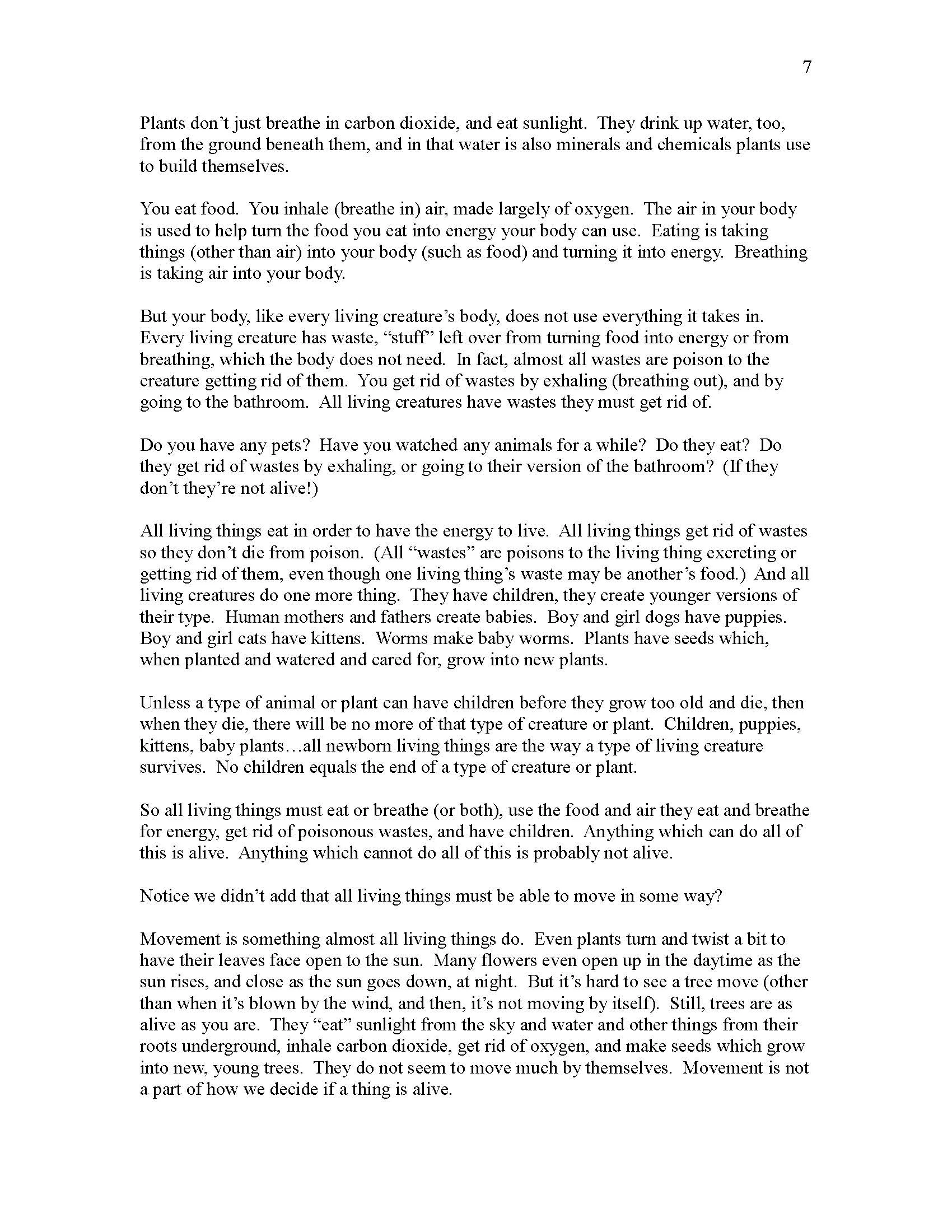Step 3 - Science 3 - Biology & Human Health
Step 3 - Science 3 - Biology & Human Health
- Develops literacy, vocabulary!
- Secular science!
- Introduces and explores Biology!
- Introduces and explores human health issues!
- Hands-on activities make science relevant to the student!
- Develops critical thinking skills!
- Develops study in a self-determined manner!
- Lesson plans are complete and ready to use! Start now!
My daughter has friends who are public schooled and home schooled. All her friends made positive comments on her (Steps) course. One of her public schooled friends asks every visit to see what is new in the science notebook. She says my daughter “gets to learn so much more” than she ever learns. K.O., Homeschool Mom
_____
The third Science course for Step 3 students, ages 9-10 who read fairly well, and for older students still developing literacy before starting Step 4 studies
Using Steps remarkable approach to education and filled with creative, hands-on experiments, the young student comes to understand the essentials of biology from a strictly secular approach. What is life? How did it come to be, as far as science is concerned? How do scientists categorize life? These and many other questions are investigated in a manner that insists the student think for himself.
Part two investigates the human body. What is a body, how does it work, how does one keep it working well?
The course specializes, as do all Steps courses, in developing the students understandings and ability to think and form their own ideas and opinions. Structured to be fun and challenging, and to increase the student’s vocabulary as well as their understanding of science.
21 lesson plans plus tests and answer guides, 32-45 hours of work depending on the student.
Includes:
- What is life (a scientific definition)
- What is Biology
- How scientists study living things
- Microscopic life forms
- Using the microscope
- Cells
- Types of Living Things and how they survive
- Evolution (contained in one lesson plan for those who object and wish to skip it)
- Artificial and natural Selection (again, contained in one lesson plan)
- Warm-Blooded and Cold-Blooded
- Types of living things (categorization)
- Insects, Fish, Amphibians, Reptiles, Birds and Mammals
- The Human Body
- How Human Beings survive
- Drugs and their effects
- Humans and having children(very preliminary sex ed)
_____
Just wanted to say thanks once again! My DS14 has gone from 'hating' school science to now being fascinated and actually considering aiming for a career in zoology eventually! For a kid who had no goals at all as far as further education he's now excited when he talks about working with animals in the future. Your science curriculum has shown him that science doesn't need to be boring and dry. We now have big long discussions about all kinds of scientific theories and chemical reactions.
He was just in his bedroom doing his creative writing and all I could hear were chuckles. It's so exciting to see him enjoying learning! I never thought I'd ever see this. He wrote a 1400 word essay the other day because he just didn't want to stop! A.R., Homeschool Mom
_____
I really like Steps, and appreciate their approach to learning. My 2 oldest children did this course, with minimal input from me. I observed and guided and monitored, but they did the work. A great way to learn the basics of science, and personal responsibility. C. A., Homeschool Mom
_____
My 9 year old daughter is absolutely loving this course. She loves the hands on lessons and is having a blast while learning so much. She is so excited with it right now that it's all she wants to work on these days. Thanks for an engaging and fun course. S. W., Homeschool Mom





